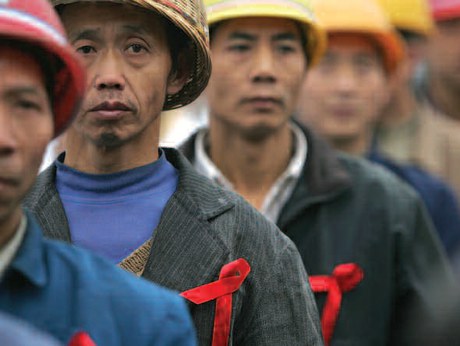
Discrimination, Denial, and Deportation: Human Rights Abuses Affecting Migrants Living with HIV
International groups, nations and donors should give increased attention to the protection of human rights and the HIV-prevention and treatment needs of migrants, Human Rights Watch said his new report. "Discrimination, Denial, and Deportation: Human Rights Abuses Affecting Migrants Living with HIV" describes how discrimination and human rights abuses faced by migrant populations result in increased vulnerability to HIV infection and barriers to care and treatment.
"Discriminatory laws and policies that deny migrants' access to prevention and treatment threaten progress on the global fight against AIDS," said Joseph Amon, director of the Health and Human Rights Division at Human Rights Watch. "HIV treatment interruptions can lead to more infections, the development of drug resistance, and death."
Hundreds of millions of people cross borders annually, travelling and migrating for work or school, for family reasons, or to flee persecution or natural disasters. Millions of others move within countries. Yet, even while pledging to achieve universal' access to HIV prevention, treatment, care, and support by 2010, nations have largely failed to remove barriers and ensure that internal and international migrants have access to HIV services. Instead, many countries have discriminatory laws and policies that restrict the entry, stay, or residence of persons living with HIV and limit the access of internal and international migrants to treatment. Many countries deport migrants without considering whether HIV treatment will be available in their country of origin.
In its report, Human Rights Watch called on nations, international agencies and donors, and nongovernmental organizations to work jointly on law reform and provision of services to ensure freedom from discrimination and continuity of treatment for HIV-positive migrant populations worldwide. (2009)
